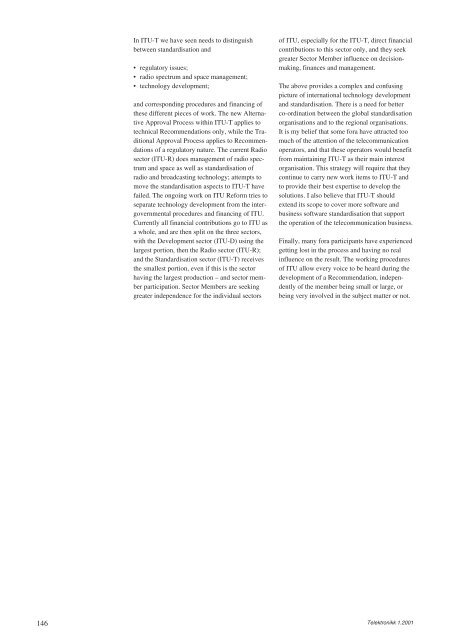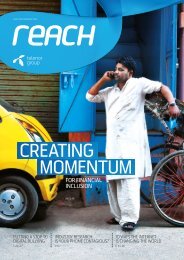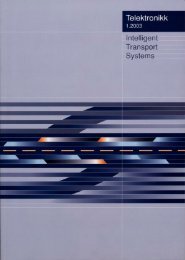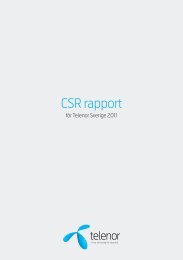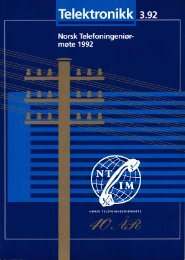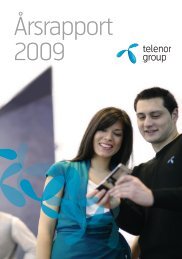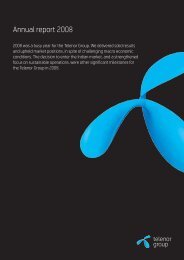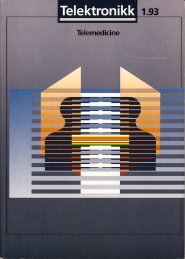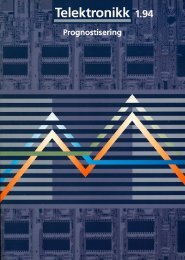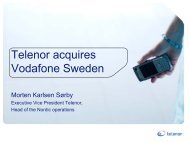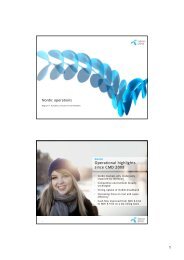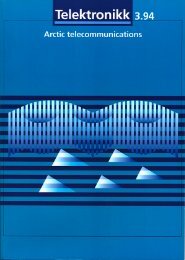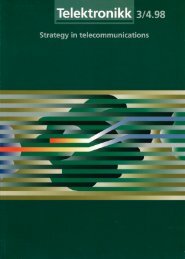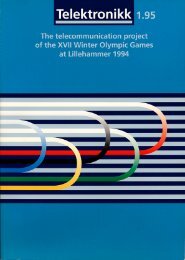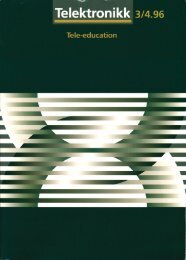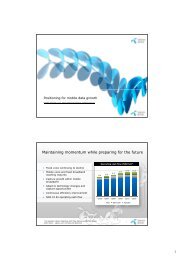You also want an ePaper? Increase the reach of your titles
YUMPU automatically turns print PDFs into web optimized ePapers that Google loves.
146<br />
In ITU-T we have seen needs to distinguish<br />
between standardisation and<br />
• regulatory issues;<br />
• radio spectrum and space management;<br />
• technology development;<br />
and corresponding procedures and financing of<br />
these different pieces of work. The new Alternative<br />
Approval Process within ITU-T applies to<br />
technical Recommendations only, while the Traditional<br />
Approval Process applies to Recommendations<br />
of a regulatory nature. The current Radio<br />
sector (ITU-R) does management of radio spectrum<br />
and space as well as standardisation of<br />
radio and broadcasting technology; attempts to<br />
move the standardisation aspects to ITU-T have<br />
failed. The ongoing work on ITU Reform tries to<br />
separate technology development from the intergovernmental<br />
procedures and financing of ITU.<br />
Currently all financial contributions go to ITU as<br />
a whole, and are then split on the three sectors,<br />
with the Development sector (ITU-D) using the<br />
largest portion, then the Radio sector (ITU-R);<br />
and the Standardisation sector (ITU-T) receives<br />
the smallest portion, even if this is the sector<br />
having the largest production – and sector member<br />
participation. Sector Members are seeking<br />
greater independence for the individual sectors<br />
of ITU, especially for the ITU-T, direct financial<br />
contributions to this sector only, and they seek<br />
greater Sector Member influence on decisionmaking,<br />
finances and management.<br />
The above provides a complex and confusing<br />
picture of international technology development<br />
and standardisation. There is a need for better<br />
co-ordination between the global standardisation<br />
organisations and to the regional organisations.<br />
It is my belief that some fora have attracted too<br />
much of the attention of the telecommunication<br />
operators, and that these operators would benefit<br />
from maintaining ITU-T as their main interest<br />
organisation. This strategy will require that they<br />
continue to carry new work items to ITU-T and<br />
to provide their best expertise to develop the<br />
solutions. I also believe that ITU-T should<br />
extend its scope to cover more software and<br />
business software standardisation that support<br />
the operation of the telecommunication business.<br />
Finally, many fora participants have experienced<br />
getting lost in the process and having no real<br />
influence on the result. The working procedures<br />
of ITU allow every voice to be heard during the<br />
development of a Recommendation, independently<br />
of the member being small or large, or<br />
being very involved in the subject matter or not.<br />
Telektronikk 1.2001


